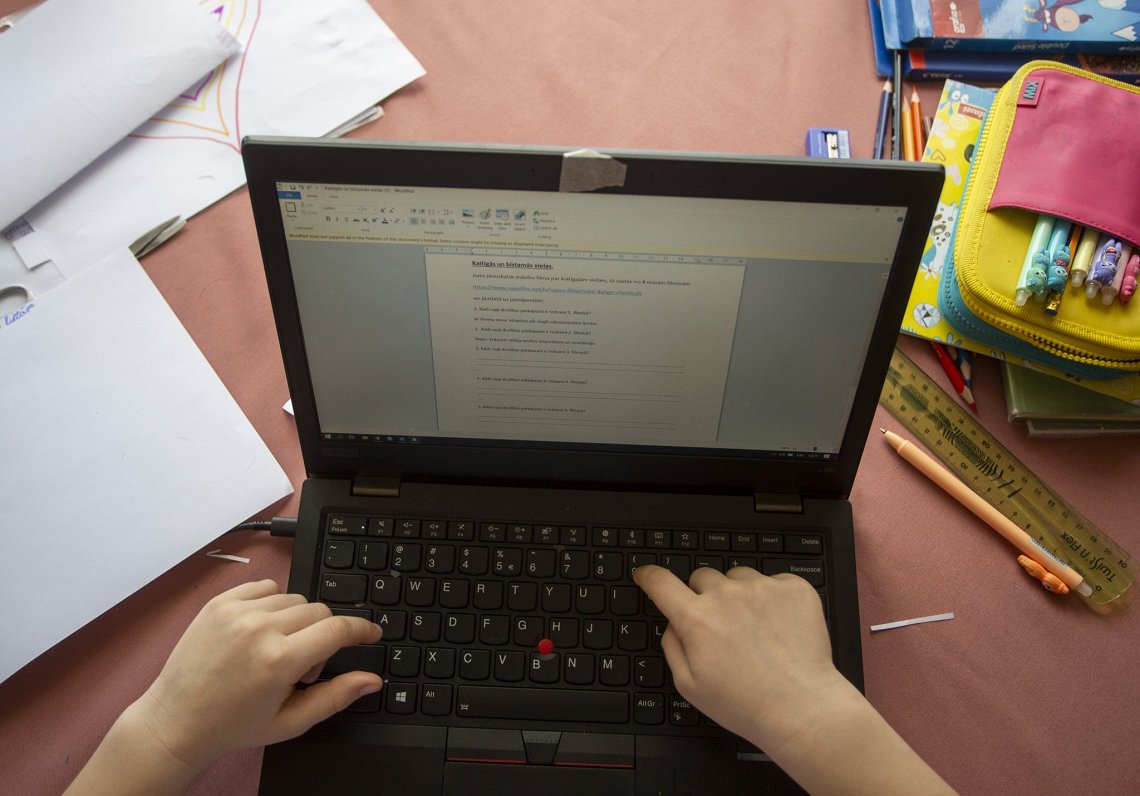She said that remote learning means a higher load for everyone - teachers and parents and children, and that learning does not take place as quickly as in-person learning, so if remote learning is to be continued or prolonged due to a pandemic, the issue of the length of the school year is on the table.
At the moment, however, this cannot be predicted, and currently remote learning is set for pupils of classes 7-12 until November 13.
Juhņēviča also said that, compared to spring, teachers were more willing to teach remote lessons, their digital literacy has improved. “The challenge is how many children and teachers are provided with the technologies that connect to the Internet, this is a problem,” said Juhņēviča.
At the same time, remote learning also has advantages: the possibility of learning digital skills well, which is one of the most important skills of today. Pupils can learn at this time the knowledge and skills that are directly relevant to their needs, teachers can differentiate and personalize work, work with each child's needs.
“If the remote learning process is high-quality and our schools are able to provide it, I think the quality of education should not fall, but of course the time will show,” the head of the center said.





























